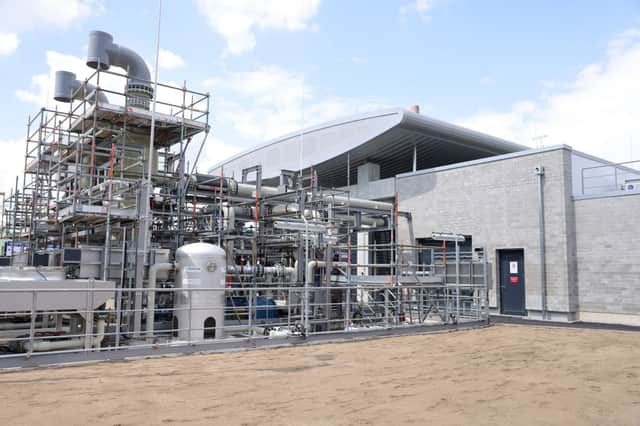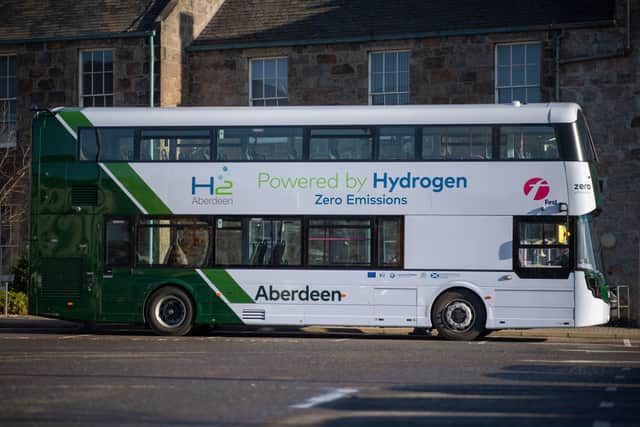Government announces subsidy plan to launch UK’s hydrogen economy


Hydrogen producers could be paid subsidies in a bid to ramp up the use of the alternative fuel in HGVs, shipping and home energy production.
The Government has announced that it wants hydrogen to account for up to 35 per cent of the UK’s energy consumption by 2050, providing a potentially cleaner alternative to oil and gas.
Advertisement
Hide AdAdvertisement
Hide AdIn its hydrogen strategy, the Government says it wants to attract investment in five gigawatts of hydrogen production by 2030, which could create 9,000 jobs and be worth £900 million to the economy.
With hydrogen currently much more expensive than traditional fuel to produce it plans to encourage the development of generation plants using subsidies in the same way as it did for off-shore wind power.


It has launched a consultation into how it will help fund the gap between the production cost and retail price of the fuel but the value of the subsidies and how they will be funded is not yet clear.
The plan from the Business Department also confirms a £105 million funding package to help industry, including the haulage, construction, quarrying and mining sectors shift from fuels such as natural gas and red diesel to cleaner alternatives including hydrogen.
Advertisement
Hide AdAdvertisement
Hide AdIn July the Government announced plans to ban the sale of new petrol and diesel trucks and lorries from 2040 - 10 years after the ban on combustion engined cars and vans.
Hydrogen power is seen as a more practical alternative to battery electric systems for heavy goods vehicles, public transport and industries such as shipping. Issues around vehicle weight, range and charging mean battery electric trucks and buses are difficult to justify but hydrogen fuel cells could offer a low-carbon alternative that can provide the power and range required and be refuelled quickly.
While much of the hydrogen would be destined for heavy industry and transport, the plan also says that the Government will explore the possibility of mixing hydrogen with natural gas to cut the emissions impact of domestic energy use.
Business and Energy Secretary Kwasi Kwarteng said: “Today marks the start of the UK’s hydrogen revolution.
Advertisement
Hide AdAdvertisement
Hide Ad“This home-grown clean energy source has the potential to transform the way we power our lives and will be essential to tackling climate change and reaching net zero.
“With the potential to provide a third of the UK’s energy in the future, our strategy positions the UK as first in the global race to ramp up hydrogen technology and seize the thousands of jobs and private investment that come with it.”
However, concerns have been expressed around the types of hydrogen production being examined.
The Government is looking at a two-pronged approach using “green” and “blue” hydrogen production.
Advertisement
Hide AdAdvertisement
Hide AdGreen hydrogen is extracted from water using electricity from renewable sources and is seen as truly zero-emissions. However, blue hydrogen is obtained from natural gas and creates greenhouse gases which then need to be captured and stored underground.
Dr Doug Parr, chief scientist for Greenpeace UK, said: “Hydrogen produced from renewable energy is genuinely low carbon, and genuinely useful in some areas of the economy where electrification is difficult.”
However, he warned that while blue hydrogen was cheaper on the surface it needed additional costly infrastructure and he highlighted a report from Cornell and Stanford universities which suggested that blue hydrogen could be worse for the climate than fossil gas due to escaped emissions and the demand for gas as a source of hydrogen.
Comment Guidelines
National World encourages reader discussion on our stories. User feedback, insights and back-and-forth exchanges add a rich layer of context to reporting. Please review our Community Guidelines before commenting.
